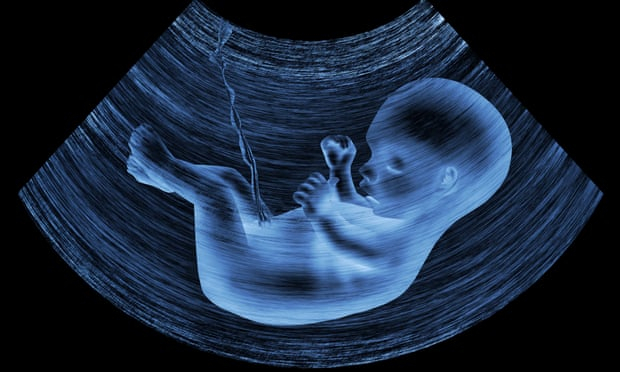The 21st century human is born into a world coated in a fine dust of petrochemical waste.
Our personal connection with microscopic fragments of plastic might even stretch back to the womb, with traces of the material recently found in the human placenta.
Placentas collected in a plastic-free environment from six mothers were sectioned, dissolved, and filtered to reveal 12 small pieces of coloured plastic, all somewhere between 5 and 10 micrometres in size. All came from just four of the placentas.
While four of the fragments were found in tissues belonging on the mother's side of the placenta, five were identified closer to the developing foetus. The last three were found embedded in the fine membrane that forms a wall around the amniotic fluid.
It might not seem like a huge number of particles, especially given their size. But it's important to remember the amount of tissue removed for analysis represents just a few percent of the organ's mass, hinting at far more microplastic fragments in total.
The placenta is an insanely complex aggregation of tissues shaped by millions of years of evolution to isolate an emerging life at the most crucial stage of its development.
Its function involves filtering pathogens and other potentially hazardous materials from the mother's bloodstream, while permitting various nutrients, antibodies, and oxygen to pass.
More than just a protective wall of meat, the organ also comprises diverse and dynamic systems of cells managed by a delicate balance of hormones and carefully timed biochemical reactions.
Whether any of the intrusive particles pose some kind of health risk to an unborn baby isn't yet clear. We'll need a lot more research before we can conclusively draw any firm links.
Since many plastic additives like the endocrine disruptor bisphenol A are known to interfere with our body's functions, their presence alone in such a sensitive part of the human body is deeply concerning.
"Due to the crucial role of placenta in supporting the foetus's development and in acting as an interface with the external environment, the presence of potentially harmful plastic particles is a matter of great concern," the team writes in their report.
"Further studies need to be performed to assess if the presence of microplastics may trigger immune responses or may lead to the release of toxic contaminants, resulting in harm."
The research echoes last year's findings by Belgian researchers that nanosized particles of carbon 'soot' inhaled by the mother can also leach across the placenta's border.
If there's any consolation in this most recent study, it's that all of the children delivered appeared to be perfectly healthy.
With just four placentas to base these results on, the research can be deemed preliminary, and as a reason to take a closer look.
We might also take heart in the fact that two of the six placentas appeared to be free of plastic particles, giving us some hope that differences in our location or lifestyle might allow us to manage our exposure to microplastic pollution.
The question is, though, for how long? Our hunger for plastic is insatiable, with waste set to double in the next two decades.
Just washing our synthetic sweatpants is enough to dump tonnes of tiny plastic fibres into the environment, making for a growing problem we are only just barely starting to comprehend.
As it is, plastic permeates just about every square inch of the planet's surface, from the mountain-tops to the deepest of ocean trenches.
The fact we should find it deep inside our bodies is no surprise these days, with growing discoveries that so much of our food and water is dosed with the material.
At some point in the future, we could realistically cross a line in just how much plastic waste our bodies can withstand.
Given no part of our existence is untouched, we might want to take the discovery of a few tiny pieces of plastic as a troubling sign of how bad things are right now.
Environment International
More about: #Placenta
















































